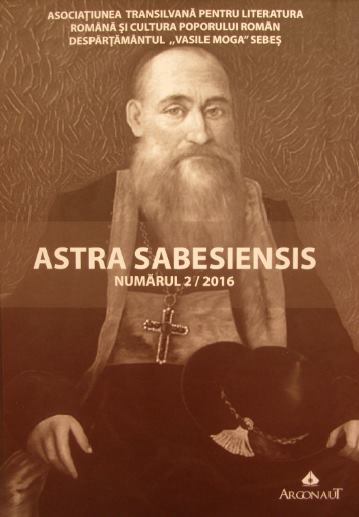BISERICA GRECO-CATOLICĂ DIN TRANSILVANIA LA FINALUL
PRIMULUI RĂZBOI MONDIAL.
The Greek-Catholic Church in Transylvania at the End of World War I.
The Preparations of the Elective Synod of Blaj
Author(s): Lucian TurcuSubject(s): History
Published by: Asociaţiunea Transilvană pentru Literatura Română şi Cultura Poporului Român - ASTRA
Keywords: cultural border; Catholic autonomy; vacancy; election; political pressure; Budapest; Holy See;
Summary/Abstract: This study highlights the difficult situation of the Greek-Catholic Church in Transylvania during the last year of the World War I. The most important issues that affected the Church at that time were the political and educational ones. The Government from Budapest wanted to establish in Transylvania a ,,cultural border”, in order to nationalize (magyarize) the Romanian confessional schools. The same Hungarian political leaders wanted to apply the project of ,,Catholic autonomy”, which was perceived by the Romanian Greek-Catholics as an infringement on the full autonomy and canonical independence of their Church. But they weren’t the only problems that the Greek-Catholic Church in Transylvania had to cope with those days. After the death of metropolitan Victor Mihályi of Apşa, the Hungarian politicians wanted to support an obedient person to occupy the seat of archbishop in Blaj. Our study, based on an unpublished documentation, analyzes the backstage games that preceded the election of the new Romanian Greek-Catholic metropolitan in May, 1918.
Journal: Astra Sabesiensis
- Issue Year: II/2016
- Issue No: 1
- Page Range: 128-157
- Page Count: 30
- Language: Romanian
- Content File-PDF

